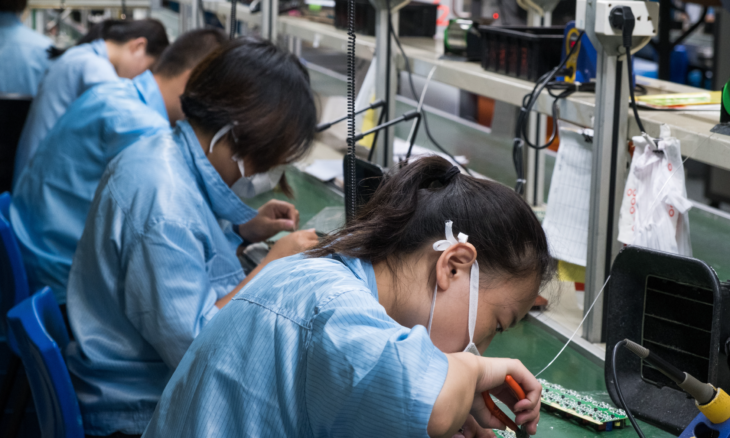Should you, as a consumer, have to do the research to make a choice between a product that has been manufactured under fair trade principles and one that exploits underage workers under horrible conditions? And what does that have to do with marketing and consumer privacy?
I’ll get to that second question in a moment. To tackle the first, we should acknowledge that it’s a dauntingly large question, and one that most consumers would prefer to ignore in most cases.
From another perspective, though, that enormous question is not all that different from consumers having to ask whether the carton of milk they’re about to buy is safe for their family to drink or cook with. In most of the developed world, there are safeguards in place so that consumers can buy milk without having to think about its safety. They even give you a date that the milk is “best by.” (As if our noses wouldn’t tell us when it was bad …)
So putting the burden of knowing whether your smartphone was manufactured responsibly on us as consumers seems absurd. Even more absurd is relying on the tech industry to police itself. I’m not picking on smartphone manufacturers in particular here. Self-regulation has been notoriously abused throughout the industrial and information ages by nearly every industry you can name.
The alternative to self-regulation or government agency intervention is the workers themselves. That’s (part of) the idea behind Bluenumber. Their mission is to create digital equity by making data a human right and empowering individuals – such as factory workers and farmers – to create and share data about working conditions. Importantly, Bluenumber enables them to own the data they create, and ensures they are compensated for sharing that information.
So, rather than relying on the “Big Brand” from whom you buy your smartphone, or the subcontractor to the supplier hired by big brands, or a U.S. government agency or the government of the manufacturing-friendly country where your smartphone is made, we rely on the workers themselves to tell us whether our smartphones are being produced responsibly.
Big brands can’t hide behind suppliers who may be based in locations with less regulatory oversight. So the workers themselves are incentivized to honestly and directly report on their working conditions.
Because they own the data they can be paid for sharing it initially, and again to independent verifying parties or regulators. By providing regular updates anonymously the workers can corroborate reports from manufacturers who rarely volunteer that there are issues in their factories. Independently verified data does the job, and those whose data it is — in this case, the workers — are fairly compensated.
This work is being done through Bluenumber’s Million Workers, whose tagline is “Giving Workers Voices.” Workers choose what to share, when and with whom – and get paid.
Consumers get more reliable data and though there is a cost to running programs like this, that cost is offset when middlemen are eliminated from the data ecosystem. (Million Makers is a non-profit, and Bluenumber consists of both a 501(c)3 and a public benefit corporation.)
As Bluenumber founder and president Puvan Selvanathan puts it, “In the Digital Economy, transparency and inclusion are basic. As more become connected there is no reason to pay auditors or intermediaries to present versions of the truth. We must let the workers and farmers speak for themselves and get paid for doing so. That data is valuable. It will save brands from the expensive risk of being linked to modern slavery.”
This can translate to consumer data, too. We could retain control of the data that is specific to us and our habits. We could choose with whom to share that and at what price. (Including free.)
It is an interesting and encouraging picture of what the future could hold for how data is gathered and used, with increased transparency, increased control over the data we generate, and ultimately, perhaps a different definition of privacy.









